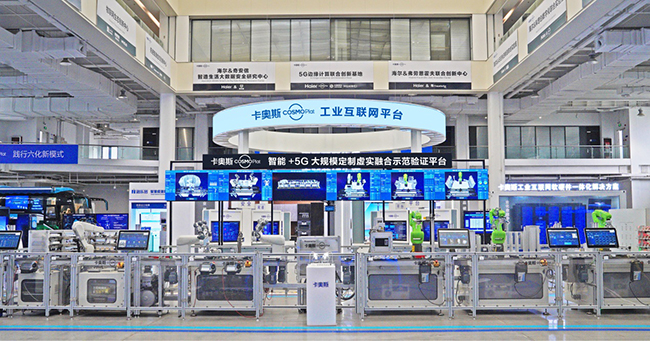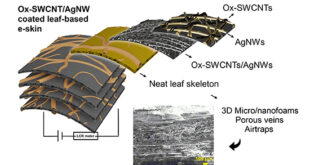Significance
The customer-product interaction life cycle (CILC) consists of various stages of interaction between a customer and a product, from the initial awareness to the eventual disposal of the product. The concept of CILC is particularly relevant in marketing, product design, and customer service, because it helps businesses understand how customers engage with their products over time. The typical stages of CILC include awareness and attraction and in this stage potential customers first become aware of a product, via advertising, word of mouth, or by encountering it in a store. Secondly, consideration and evaluation where at this point, the customer is actively considering the product and evaluating its features, benefits, and drawbacks against their needs and preferences. Then the purchase, which is the actual transaction stage where the customer decides to buy the product. After purchasing, the customer uses the product and start building an opinion based on their experience. This stage is crucial for forming long-term perceptions of the product and brand. Afterward, the customer’s interaction with the product occurs with maintenance, repairs, and seeking support in case of issues. Then it comes the stage of advocacy or disengagement, depending on their experience, customers may become advocates for the product, recommending it to others, or they may disengage and stop using it. Finally, when the product reaches the end of its life cycle, it is either being disposed of or replaced. Understanding the CILC cycle can help businesses improve their product design, marketing strategies, and customer service approaches to enhance customer satisfaction and loyalty.
On the other hand, smart product service systems (SPSS) an emerging concept which integrates smart products with service systems to enhance customer experiences and create value. This concept is gaining traction in various industries, including manufacturing, healthcare, and retail. It includes smart products embedded with sensors, software, and connectivity that allow them to collect, exchange, and process data. Examples include smart appliances, wearable technology, and connected vehicles. The other component is the service systems which involves services that complement or enhance the value of smart products. This includes maintenance, updates, data analysis, or customer support, often leveraging the data collected by the smart products themselves. SPSS often relies on the analysis of large volumes of data collected by smart products. The data can be used to improve product performance, personalize services, and predict maintenance needs. It is important to mention that SPSS focuses on improving customer engagement and experience. By combining products with services, companies can offer more personalized, convenient, and efficient solutions to customers. It often requires innovative business models. Rather than just selling a product, companies might adopt subscription models, performance-based contracts, or other service-oriented approaches. By enabling better monitoring and control, SPSS can contribute to sustainability goals, like reducing energy consumption or optimizing resource use. Indeed, SPSS represent a holistic approach that combines advanced, connected products with tailored services to create comprehensive, value-added solutions for customers. This approach is reshaping how businesses deliver value and how customers interact with products and services.
In a new study published in the Journal of Cleaner Production by Assistant Professor Xianyu Zhang, senior engineer LuCheng Chen, Mr. GuoJun Sheng, Professor XiaoPing Lu, and Professor Xinguo Ming from the SJTUSME-COSMOPlat Joint Research Center for New Generation Industrial Intelligent Technology- School of Mechanical Engineering at the Shanghai Jiao Tong University, offered a comprehensive look into an innovative service system designed for the CILC in the context of SPSS. This service system is a response to the evolving demands of customers in an era marked by mass personalization, highlighting the shift from traditional functional product demands to a more integrated and interactive approach.
The researchers presented a detailed framework for building a service system that encompasses three critical dimensions: product attributes, customer attributes, and service attributes. This multidimensional approach aimed to cater to diverse customer needs and preferences, ensuring a more personalized and engaging customer experience. The system leverages advanced algorithms for personalized service recommendations, considering factors like enterprise service characteristics, service item weights based on various criteria such as service years, annual service revenue, and product complexity. The authors elaborated on the significance of the system in enhancing customer experience, emphasizing the integration of customer participation in product life cycles and the importance of smart product-service systems in today’s dynamic market. The researchers’ innovation is thought to be a significant shift in how businesses approach customer engagement and service delivery, highlights the need for more customer-centric and adaptive service models in the era of Industry 4.0. In conclusion, the authors contributed significantly to the field of customer service systems, offering a novel framework that aligns with contemporary market trends and customer expectations. The proposed new system highlighted the importance of personalization and customer engagement in the product-service ecosystem, providing valuable insights for businesses aiming to thrive in a rapidly evolving market landscape.


Reference
Xianyu Zhang, LuCheng Chen, GuoJun Sheng, XiaoPing Lu, Xinguo Ming, An innovation service system and personalized recommendation for customer-product interaction life cycle in smart product service system, Journal of Cleaner Production, Volume 398, 2023, 136470.
 Advances in Engineering Advances in Engineering features breaking research judged by Advances in Engineering advisory team to be of key importance in the Engineering field. Papers are selected from over 10,000 published each week from most peer reviewed journals.
Advances in Engineering Advances in Engineering features breaking research judged by Advances in Engineering advisory team to be of key importance in the Engineering field. Papers are selected from over 10,000 published each week from most peer reviewed journals.






